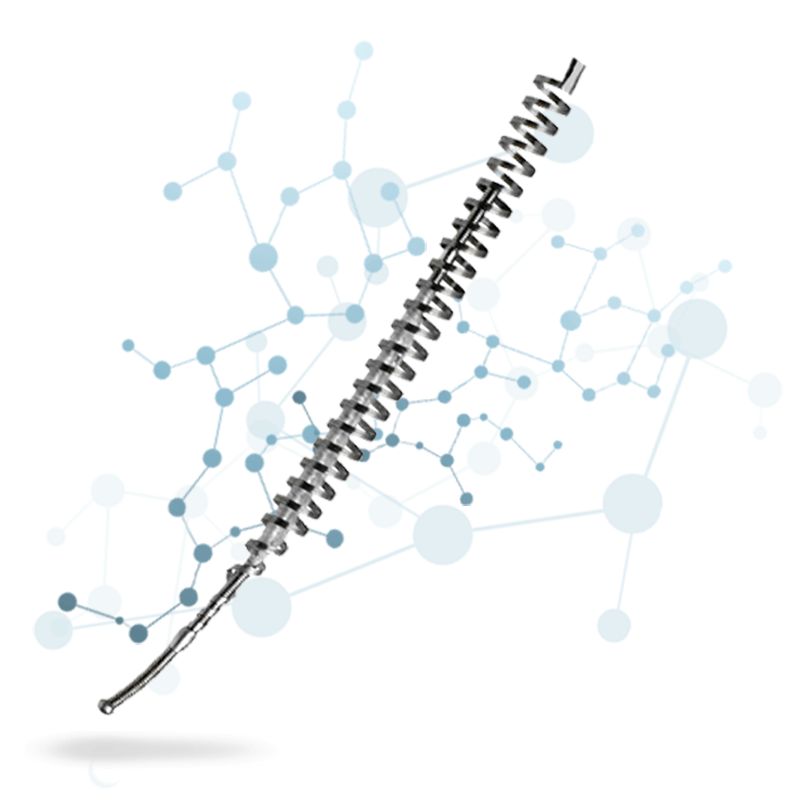Essure Side Effects & Health Complications
 Since the U.S. Food and Drug Administration approved Essure in 2002, thousands of women have undergone the sterilization procedure. Presented as safer and easier than tubal ligation, Essure involves a doctor inserting flexible coils through the vagina and cervix. The device is placed into the fallopian tubes, where scar tissue eventually envelops both Essure coils during a process called fibrosis. That scar tissue creates a physical barrier that prevents sperm from reaching your eggs and fertilizing them. Of course, the Essure procedure has many benefits (permanent birth control, less invasive than getting your tubes tied, no surgery needed). However, it may also cause serious Essure side effects just two years after implantation.
Since the U.S. Food and Drug Administration approved Essure in 2002, thousands of women have undergone the sterilization procedure. Presented as safer and easier than tubal ligation, Essure involves a doctor inserting flexible coils through the vagina and cervix. The device is placed into the fallopian tubes, where scar tissue eventually envelops both Essure coils during a process called fibrosis. That scar tissue creates a physical barrier that prevents sperm from reaching your eggs and fertilizing them. Of course, the Essure procedure has many benefits (permanent birth control, less invasive than getting your tubes tied, no surgery needed). However, it may also cause serious Essure side effects just two years after implantation.
Even Essure removal can be risky for some women. Some Essure side effects are similar to menstruation, but others are far more serious, causing long-term damage and even death. If you’re considering getting it or already have it and wonder whether your Essure side effects are normal, read on…
How Preemption Laws Protect Bayer from Essure Product Liability Claims
The FDA believes that due to their rigorous approval process, device manufacturers shouldn’t be held responsible for potential side effects. Yet lawsuit filings against Bayer claim the company lied to the FDA during the Essure pre-market application process. Various claims assert Bayer violated the FDA’s premarket approval terms and withheld important data about Essure. If evidence proves this allegation true, Bayer would have to forfeit its preemption status for Essure.
Postmarket Studies On Essure Side Effects Are Now Underway
Naturally, some women have a complication-free experience with Essure — but not all do. Some women report Essure side effects that the device’s manufacturer, Bayer, didn’t document. Women are suing Bayer for negligence, failure to properly conduct safety tests and warn about potentially lasting Essure side effects.
Essure side effects most commonly reported in postmarket studies during the first few days and months following implantation include:
- Vomiting
- Cramping
- Dizziness
- Device expulsion
- Perforation
- Fainting
- Device migration
- Hypervolemia (excess fluid in the blood)
- Infection
Doctors also warn patients they may experience mild spotting for three days following Essure placement and “mild to moderate pain.”
Long-term Essure Side Effects Cited in Claims Filed Against Bayer
According to adverse event reports filed with the FDA, long-term Essure side effects can be severe. Since Bayer didn’t perform rigorous Essure testing before seeking FDA approval, many reports are anecdotal from women suffering them personally. Essure side effects listed in the FDA’s adverse event reports include:
- Pain (acute or persistent) of varying intensity and length of time
- Abdominal cramps
- Bloating
- Back pain
- Headaches
- Vaginal discharge and discomfort
- Heavier periods
- Weight changes
- Abnormal bleeding
- Mood changes (including depression)
- Joint or muscle pain
- Muscle weakness
- Pain during intercourse
- Hair loss
While some Essure side effects are treatable, others are not. More recent clinical trials discovered even more serious long-term Essure side effects, including some complications that patients weren’t warned about. Many of these Essure side effects and risks are life-threatening (including uterine perforation), and can cause even more health complications. We’ll explain these risks in further detail below.
Severe Essure Side Effects & Associated Complication Risks
In Bayer’s premarketing studies on the Essure sterilization procedure, few women were followed more than one year after device implantation. As a result, the FDA required two mandatory five-year Essure post-marketing studies to discern any possible long-term complication risks.
Severe Essure Side Effects: Unintended Pregnancy
A Yale University School of Medicine and UC Davis study compared laparascopic vs. hysteroscopic (Essure) sterilization pregnancy statistics. Researchers discovered that 57 out of every 1,000 women will become pregnant after undergoing hysteroscopic (Essure) sterilization. By comparison, 3 out of 1,000 women will become pregnant after laparoscopic sterilization. Mind you, those numbers account for pregnancies documented only within the first year. After 10 years, it jumps to 96 per 1,000 women with hysteroscopic sterilization vs. 24-30 per 1,000 women for laparoscopic.
Severe Essure Side Effects: Ectopic Pregnancy
Ectopic pregnancies occur when fertilization happens outside the uterus (usually in the fallopian tubes). An ectopic pregnancy can be extremely dangerous and cannot proceed as usual. The fertilized egg can’t survive outside the uterus, and growing tissue can destroy various maternal organs. If it goes untreated, life-threatening blood loss and rupture of the fallopian tubes (or ovaries) is possible. Ectopic pregnancies are hard to detect and often go unnoticed — particularly for women unaware they can still successfully conceive.
Severe Essure Side Effects: Internal Organ or Tissue Perforation
A 2008 study revealed that perforation is the most common complication stemming from Essure placement. Essure can cause perforation in the following areas:
- Uterus – Uterine perforation can sometimes happen during or after Essure insertion. This is usually due to a broken Essure coil.
- Fallopian tubes – When a doctor places Essure too far into the fallopian tubes, it can result in perforation. It may also occur randomly, however, and those instances are often caused by tubal spasms.
- Cervix – Cervical perforation typically occurs during the insertion process.
- Fetal membrane – The FDA received five fetal death reports after Essure coils perforated the amniotic sac or uterus. Since it’s still possible (though uncommon) to become pregnant with Essure, this can cause late-term miscarriage and other complications.
- Intestines – After Essure perforates a fallopian tube, it may then migrate into the abdomen. From there, it can perforate the bowel and damage the patient’s intestines or other nearby organs.
Severe Essure Side Effects: Device Migration to Abdomen or Pelvis
The FDA received 482 reports about Essure coils migrating to other areas within the body (usually the abdomen or pelvis). From there, Essure coils can perforate organs or cause scar tissue to form in unwanted locations.
Severe Essure Side Effects: Severe Allergic Reactions
Because doctors usually don’t test patients for nickel allergies, it’s possible that some patients will react to Essure’s nickel-based coils. Nickel allergy symptoms include hives, rash, swelling and itching.
Essure Side Effects Are Similar to Those Reported By Mirena IUD Patients
Bayer also manufactures the Mirena intrauterine device (IUD). Mirena IUD users and women implanted with Essure permanent birth control share eerily similar side effect complaints. A gynecologist inserts the Mirena IUD into a woman’s uterus, where it can remain for up to five years. Both devices have similar health complication risks for women, including:
- Migration
- Perforation
- Adhesions
- Embedment in the uterine wall
- Ectopic pregnancy
- Pelvic Inflammatory Disease (PID)
Experts noting these troubling similarities are concerned Bayer hasn’t done enough premarket safety research on their birth control devices.
Check eligibility for compensation.
If you or a loved one developed severe complications while implanted with Essure permanent birth control, you may be entitled to compensation from the manufacturer. Request your free case evaluation now to see if you may qualify.
Lori Polemenakos is Director of Consumer Content and SEO strategist for LeadingResponse, a legal marketing company. An award-winning journalist, writer and editor based in Dallas, Texas, she's produced articles for major brands such as Match.com, Yahoo!, MSN, AOL, Xfinity, Mail.com, and edited several published books. Since 2016, she's published hundreds of articles about Social Security disability, workers' compensation, veterans' benefits, personal injury, mass tort, auto accident claims, bankruptcy, employment law and other related legal issues.




